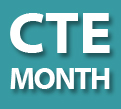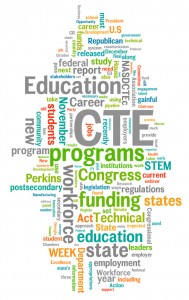Today we continue our joint series on international CTE practice and programs with Education Week’s Global Learning. This is the second part of Heather Singmaster’s interview with Mr. TAN Seng Hua, Dean, ITE Academy in Singapore and one of the architects of Singapore’s CTE/VET system. Be sure to also read Part 1.Â
Q: What are the challenges VET/CTE faces? What are some solutions you are looking to implement?
A: There are multiple challenges faced by CTE globally. First, we need to ensure that the training programs are up-to-date and the curriculum is able to address the skilled manpower (workforce) needs of the economy. Working in close partnership with employers to plan and design the CTE curriculum, developing an authentic learning environment, and providing real work and workplace experience to the students are essential approaches adopted by ITE.
Second, we need to understand the profile of CTE students and their learning behavior to better design pedagogic approaches and enrichment activities to bring out their full potential. Pedagogic innovation to make training fun and engaging will further help to develop and retain the interest of students in CTE, given their preference for activity-based learning. To a certain extent, ITE colleges are designed as “Education Wonderlands”, allowing students to acquire relevant skills and knowledge through fun and authentic learning activities.
Q: What is the role of employers/labor/industry in your VET/CTE system?Â
A: Partnership with industry is a key strength of Singapore’s CTE system. Over the years, ITE has established a network of industry partners to support its training programmes. These are industry leaders in their respective fields locally and globally, and they support ITE in the setting of skill standards and curriculum design, workplace training and attachment, skills promotion and marketing, employment and engagement of our graduates, sponsorship of students and industry project collaboration, and constructive feedback on both the performance of our student interns/graduates and the improvement needed in our training structure and contents.
The labor movement in Singapore is also very active in promoting the importance of skills acquisition among their members. Many of the union leaders play the role of “skills champions” to encourage their members to acquire new skills and train for deeper skills to improve their career advancement opportunities and enhance their earning power.
Q: What do you think the future of VET/CTE in Singapore looks like?
A: CTE will continue to be a key component of Singapore’s education system in the years ahead. It is a key strength of our education and human resource development structure and a major contributing factor to the success of Singapore’s economic development over the past few decades.
Moving forward, CTE in Singapore would evolve to further engage the employers in the training of the present and future workforce. While the present college-based CTE system has worked well in the past to prepare the youths for the workplace, given the fast changing economy and technology, the skilled manpower needs of the employers have also changed rapidly. To avoid a potential mismatch of the competency of our graduates with the skills demand of the employers amid this shorter product and technology life-cycle, we need to work in close partnership to redesign our curriculum to enable the acquisition of industry-specific and new skills at the workplace.
Q: What advice do you have for other systems attempting to reform their VET/CTE systems? What are some of the policies in Singapore that could assist others in overcoming the challenges they face in VET/CTE?
A: ITE in Singapore has gone through waves of transformation in the past two decades. We have raised the quality and image of CTE in Singapore and gained the acceptance and recognition by employers, parents, students, and the community as a whole that CTE is a viable post-secondary education option that can prepare youth for a rewarding career. We have developed three world-class campuses, designed to provide authentic learning environment to support the total development of our students. We have also developed an innovative curriculum structure to better prepare our students for the changing work environment in industry, and creative pedagogy to inject fun learning in CTE. Last but not least, we have put in place a strong and effective academic quality assurance system to instill professional pride and discipline among our CTE leaders and staff to continually improve our CTE system and delivery.
The success of ITE in Singapore is a result of system review and staff competency at all levels. There are many useful lessons that could be shared with the global CTE community. At the national level, there are important policy decisions, which must be addressed to position CTE appropriately in relation to the education and economic development of the nation. At the institution level, the philosophy of education and the strategic focus of the management team will determine the quality and relevance of the programs offered, and at the individual level, the passion and commitment to provide innovative solutions and learning activities will contribute to the success of the CTE system in developing and retaining the interest of students.
Our success story has attracted the interest of many countries globally. We have frequent visit requests from the CTE community globally, and many of these visits ended up with requests for assistance to review/enhance their CTE system and development of their CTE leadership and professional competency. Currently, we have CTE consultancy projects in some 25 countries around the world, and they cover a wide spectrum of areas including CTE Infrastructure Planning and Development, CTE Leadership Development, CTE Technology and Pedagogic Development, CTE Assessment and Certification Systems, and CTE Academic Quality Assurance System.
 Follow the ITE and Heather on Twitter.
Katie Fitzgerald, Communications Associate
 We have  heard of some great work going on across the country for Career Technical Education (CTE) Month!
We have  heard of some great work going on across the country for Career Technical Education (CTE) Month! Association developed a newsletter (that you can see to your right)  delivered to all legislators in the state, also using the Learning that Works branding.
Association developed a newsletter (that you can see to your right)  delivered to all legislators in the state, also using the Learning that Works branding.





